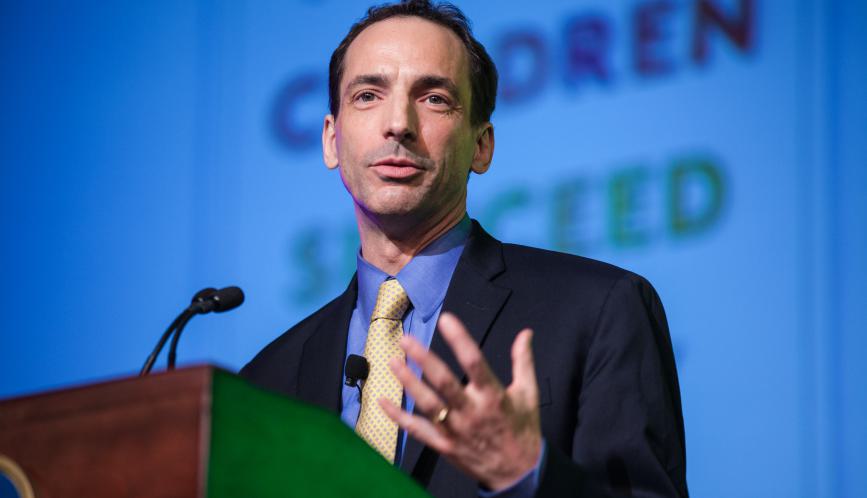Paul Tough is a member of the Early Childhood Interventions network. A journalist by trade, Tough’s most recent book is “Helping Children Succeed: What Works and Why,” a guidebook for helping to improves the lives of disadvantaged children. He is a contributing writer to the New York Times Magazine. He has also contributed to the New Yorker, GQ, and “This American Life.”
Please describe your area of study and how it relates to current policy discussions surrounding inequality?
In my most recent book, “Helping Children Succeed,” I wrote about interventions that seek to improve opportunity for low-income children by changing their environment, either in the home or at school. The environmental forces that I’m particularly interested in are the relationships children have with the adults in their lives (including parents and teachers), and the implicit and explicit psychological messages that children derive from those relationships.
What are areas in the study of inequality most in need of new research?
There are two that I would name. First: How do interventions in the lives of low-income children interact with and build on each other? If a child’s parents are enrolled in a good early home-visiting program, and then the child is enrolled in a high-quality childcare and preschool program, and then the child attends an above-average public school, do those interventions build on each other? And if so, how?
The second (related not to “Helping Children Succeed” but to my next reporting project) has to do with the relative value of higher-education credentials for students of different skill levels and socioeconomic backgrounds. Does a B.A. create more value for a low-skill student or a high-skill student? Does it create more value for a student from a high-income family or a low-income family? How are the answers to those questions affected by the selectivity of the higher-education institution and the student’s course of study?
What advice do you have for emerging scholars in your field?
I’m a journalist, rather than a scholar. So I’ll offer advice to emerging journalists interested in writing about inequality: Strive for a balance, in what you write, between academic research and on-the-ground reporting. Good journalism in this area needs to be deeply informed by the research of scholars like those in HCEO. But journalists can also add to the conversation by telling the stories of individuals, families, and communities who are personally affected by inequality of opportunity. When that reporting is fair and accurate and deep, it can add valuable perspectives to the rigorous empirical research that scholars are doing.



